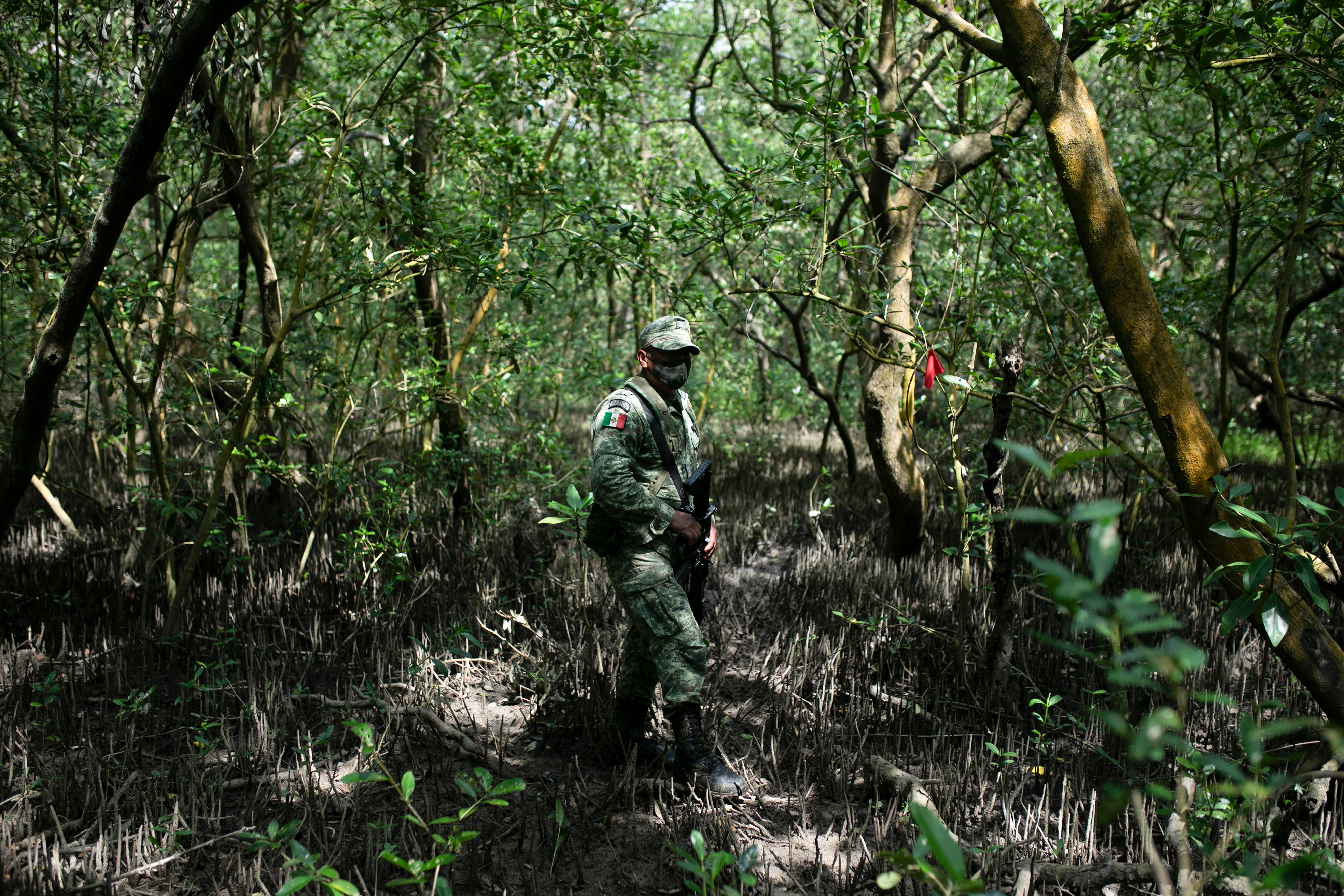Mexico finds clandestine burial pits in north, Gulf coast
Investigators in Mexico have found at least a half-dozen bodies buried in shallow pits in the northern state of Sonora, while in the Gulf coast state of Veracruz, experts and police uncovered at least three burial pits in a tropical mangrove island

Your support helps us to tell the story
From reproductive rights to climate change to Big Tech, The Independent is on the ground when the story is developing. Whether it's investigating the financials of Elon Musk's pro-Trump PAC or producing our latest documentary, 'The A Word', which shines a light on the American women fighting for reproductive rights, we know how important it is to parse out the facts from the messaging.
At such a critical moment in US history, we need reporters on the ground. Your donation allows us to keep sending journalists to speak to both sides of the story.
The Independent is trusted by Americans across the entire political spectrum. And unlike many other quality news outlets, we choose not to lock Americans out of our reporting and analysis with paywalls. We believe quality journalism should be available to everyone, paid for by those who can afford it.
Your support makes all the difference.At least a half-dozen bodies have been found buried in shallow pits in the scrubland of the northern Mexico state of Sonora while in the Gulf coast state of Veracruz experts and police uncovered at least three burial pits in a tropical mangrove island, authorities said Thursday.
Prosecutors in Sonora said a volunteer search team first found the clandestine burial site in the town of Cajeme, which police and experts then excavated. Two corpses and four sets of skeletal remains were recovered from the pits, which were near a formal graveyard.
In Veracruz, investigators from the National Search Commission found three pits with human remains and plastic bags inside. The number of bodies there has not yet been determined.
Veracruz has been the scene of some of the largest clandestine burial pits in recent years. The sites are often used by drug gangs to dispose of the bodies of rivals or kidnapping victims.
Volunteer search groups usually made up of relatives of missing people have played major roles in finding burial pits in Mexico.
Lucia Diaz, an activist whose Colectivo Solecito group has led police to other Veracruz burial grounds in the past, said she was surprised that criminals had taken the trouble to use the isolated mangrove swamp to get rid of bodies.
“This is a state where we really have (burial) pits everywhere,” Diaz said. “What does surprise us is that they had gone so far as to seek out difficult, remote places that make searches more difficult and cause greater decomposition to the bodies.”
Diaz said that because the site is so watery and alkaline, it may be hard to get DNA samples to identify the bodies.
In November, authorities in the western state of Jalisco recovered 113 bodies and additional human remains from a secret grave in the town of El Salto, just outside Guadalajara. A total of 189 corpses were discovered in the town throughout 2020.
More than 80,000 people are listed as missing since Mexico’s drug war began in 2006.